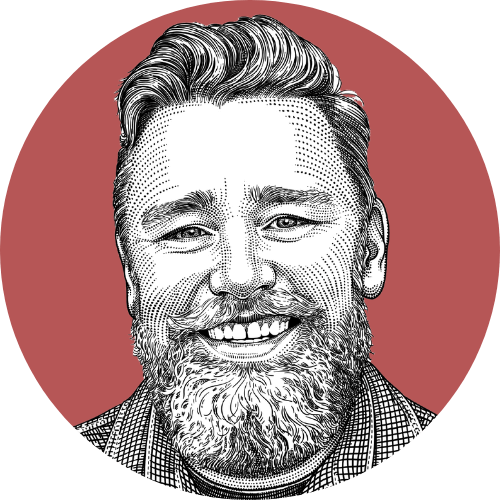Optimism: A Wonderful Paradox
JUSTIN CAMP
5 min read ⭑
The day is perfect. High 80s. Clear skies. Light breeze. Green-blue waters. Jennifer and I are with my sister and her family, motoring past the buoys that divide the five and 40 mph sections of Bass Lake. The lake sits on the western slope of the Sierra Nevada mountain range, about 14 miles south of the entrance to Yosemite, and it is, for me, a place of pure nostalgia. My sister and I spent many hours swimming, canoeing, fishing, waterskiing and sailing on the lake as teenagers, attending camp at Skylake Yosemite in the 1980s.
Many decades prior, though — all the way back in 1930 — Bass Lake began hosting an annual Independence Day aerial fireworks display. It now draws an estimated 60,000 Fourth of July revelers to the lake, us among them. Most folks line the shore, but several hundred people are in boats, which seem to be everywhere: ski boats blasting Lynyrd Skynyrd and Bruce Springsteen while pulling waterskiers and inflatables, pontoon boats flying American flags, jet skis and wave runners darting about, kayaks and paddleboards trying to stay out of the way, and speedboats flashing blue lights full of local sheriffs trying their best to keep the rest of us safe. I don’t consider myself a lake person, but this is amazing. A portrait of Americana. It makes my heart swell.
I confess I’m primed and prepared for this particular emotional response because on our drive over from the San Francisco Bay Area, Jenn and I listened to an episode of Honestly with Bari Weiss, a podcast from The Free Press. In the episode, Weiss interviewed Akhil Amar, a law professor from Yale, as he guided us listeners through the story of our country’s founding and expressed much optimism for our future. His optimism was grounded in constitutional principles rather than partisan politics.
And that put me in a patriotic — and optimistic — mood myself.
Optimism is good. Harvard Medical School researchers, tracking participants over decades, found that optimistic individuals were 55% less likely to die from cardiovascular disease and enjoyed a 45% lower risk of death overall. These studies, among others, consistently show that optimism is correlated with fewer incidents of depression, higher levels of well-being and stronger connections to social support.
Cynicism, by contrast, is associated with cancer, heart attacks, dementia and obesity. When cynicism becomes excessive, it contributes to difficulties in forming meaningful relationships and fosters emotional guardedness, eroding trust. Research on first responders found cynicism significantly related to anxiety and depression, with cynical individuals more likely to experience emotional detachment.
But none of this should come as a surprise to us Christians. Throughout Scripture, one aspect of God’s mission is remarkably clear: He relentlessly encourages optimism in his sons and daughters. Not naive denial, but robust hope rooted in his character. “Fear not,” he says (Matt. 10:31, ESV). “Be strong, and let your heart take courage, all you who wait for the Lord!” the Psalmist declares (Ps. 31:24). “For I know the plans I have for you,” God promises through Jeremiah, “plans for welfare and not for evil, to give you a future and a hope” (Jer. 29:11).
When we choose to live optimistically, we’re not just improving health and wellness; we’re aligning our hearts and minds and lives with God’s plans for human flourishing. Knowing him, trusting his promises, we become flagbearers for a resolute optimism.
But right there. There’s the profound paradox that Ann Voskamp illuminated in her runaway bestseller “One Thousand Gifts” — we cannot choose optimism, not directly, at least. If we aim at it, we’re guaranteed to miss it altogether. Like peace and joy, optimism is a byproduct of something else.
“When we give thanks, everything turns. And God never turns away.”
So, what is that something else? What can we aim at to adopt optimistic attitudes and worldviews — and thereby gain all the multiplying benefits of living with resolute optimism in our hearts? Well, one of them is gratitude. To borrow one of Voskamp’s most famous quotes (and adapt it slightly to our purposes), Being optimistic isn’t what makes you grateful. Being grateful is what makes you optimistic.
Gratitude is key because it’s something we can aim at, something we can choose … with practice. Voskamp discovered this truth in tragedy. Witnessing the death of her younger sister sent her into a period of cynicism, depression and pervasive ungratefulness. It took years to process her trauma and grief, but her ultimate remedy was radical: to restore thanksgiving as a spiritual discipline. Her rescue came by making gratitude a habit.
It’s essential to note that Voskamp’s gratitude was not the regular kind but the doxological kind — thanksgiving rooted in worship rather than mere positive thinking. “Gratitude isn’t only a celebration when good things happen,” she wrote. “It’s a declaration that God is good no matter what happens.”
“When your eyes are on God,” Voskamp explained, “your heart bursts into a flame of thanks … and thanks burns back the dark.” When we train our eyes to see God’s gifts everywhere, in all moments, we begin to expect more of the same. We train ourselves to be optimistic — and then we can obtain everything that results. But when we fail to recognize these gifts, we train ourselves to expect the opposite. When we fail to notice what God is doing in our lives, we train ourselves to be cynical.
It’s also important to acknowledge that God’s definition of “good” often differs from ours. His gifts are not always the outcomes our fallen hearts most want, but in the fullness of time, they are always the outcomes we most need. So, true optimism is trusting that, in the end, no matter what happens, with God, everything will be okay.
In a world that views cynicism as sophisticated realism, it’s time for people of faith to go rogue and recognize that this kind of optimism — the kind that transforms body, mind and soul, leading to peace, joy and health — comes only from doxological gratitude. When we give thanks, everything turns. And God never turns away.
The brave who focus on all things good and all things beautiful and all things true, even in the small, who give thanks for it and discover joy even in the here and now, they are the change agents who bring fullest light to all the world. —Ann Voskamp
Will you look around for three gifts today? Will you take a moment to look closely at your corner of the world today and identify three things for which you are grateful, giving thanks to God? Will you go a step further and commit to finding three gifts every day for the next week?
Justin Camp is the editor-in-chief of Rapt Interviews. He also created the WiRE for Men devotional and wrote the WiRE Series for Men. His writing has also been featured and seen on Charisma, Moody Radio, Focus on the Family, GOD TV, The Christian Post, Crosswalk, Belief.net, LifeWay Men and other media outlets.


